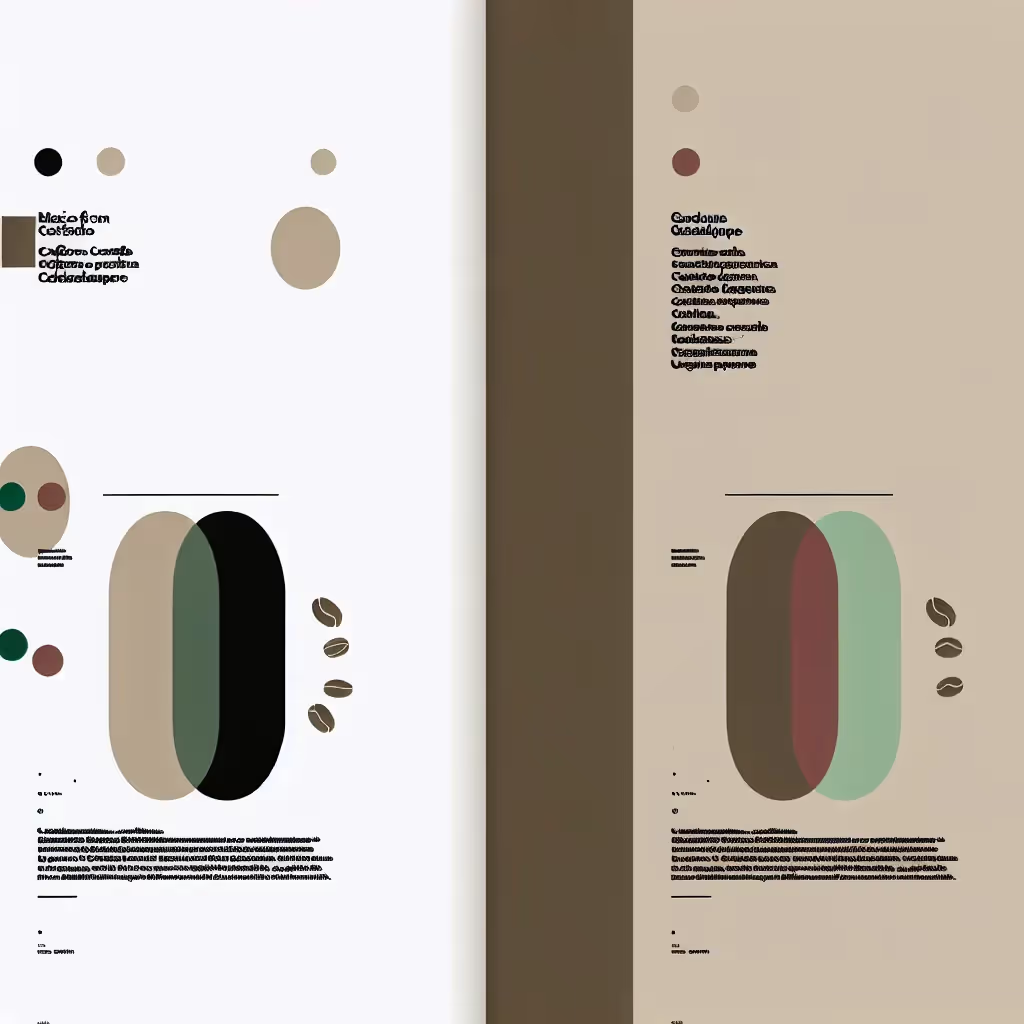Mexican Vs. Salvadoran Coffee
This comparison explores the distinct qualities of Mexican and Salvadoran coffee, highlighting their flavor profiles, growing conditions, and cultural significance in the specialty coffee world.

Brief Description
Mexican coffee is known for its light body, mild flavor, and bright acidity. Grown primarily in the southern states of Chiapas, Veracruz, and Oaxaca, Mexican coffee benefits from the region's rich volcanic soils and high altitudes. The country's coffee industry has a strong focus on organic and shade-grown practices, resulting in beans that are both environmentally friendly and full of character. Mexican coffee often exhibits nutty, chocolatey notes with a subtle fruitiness, making it a versatile and approachable choice for coffee lovers.
Salvadoran coffee is renowned for its exceptional quality and distinctive flavor profile. Grown in the volcanic soils of the country's mountainous regions, these beans offer a perfect balance of sweetness and acidity. El Salvador's coffee industry has faced challenges but has rebounded with a focus on specialty coffee production, showcasing unique varieties like the beloved Pacamara. The country's dedication to quality and innovation in processing methods has earned it a respected place in the specialty coffee world.
Importance of Comparison
Comparing Mexican and Salvadoran coffee is crucial for coffee lovers seeking to understand the nuances of Central American beans. These origins offer unique flavor profiles and represent different approaches to coffee production, from Mexico's focus on organic practices to El Salvador's dedication to specialty varieties. Understanding these differences helps consumers make informed choices and appreciate the diversity of coffee flavors.
Key Attributes
Origin
Mexican
Salvadoran


Consumer Guide
When choosing between Mexican and Salvadoran coffee, consider your flavor preferences. Mexican coffee offers a lighter body with nutty and chocolatey notes, ideal for those who enjoy a milder cup. It's excellent for pour-over, drip, and cold brew methods. Salvadoran coffee, known for its balance of sweetness and acidity, is perfect for espresso and French press brewing. If you're interested in organic options, Mexican coffee often fits the bill. For unique varieties like Pacamara, look to El Salvador. Consider the altitude: Mexican coffee grows between 900-1800m, while Salvadoran beans typically come from 1200-1800m, affecting flavor complexity. Lastly, think about production scale: Mexico produces significantly more coffee, potentially offering more consistent availability.
Expert Opinions
Coffee expert Maria Rodriguez notes, 'Mexican coffee's light body and bright acidity make it a crowd-pleaser, while Salvadoran coffee's complexity appeals to connoisseurs.' Roaster John Smith adds, 'El Salvador's focus on specialty varieties like Pacamara has elevated its status in the coffee world, offering unique flavor experiences. However, Mexico's organic practices are unmatched, producing clean, crisp cups that showcase the terroir beautifully.'
FAQs
Mexican coffee typically offers nutty and chocolatey notes with mild citrus undertones, resulting in a light and approachable cup. Salvadoran coffee, on the other hand, is known for a more complex profile featuring chocolate and caramel notes balanced with bright citrus flavors, creating a cup with more depth and sweetness.
Salvadoran coffee is generally preferred for espresso due to its balanced sweetness and acidity, which creates a rich, flavorful shot. Mexican coffee, with its lighter body, is more commonly used for filter brewing methods. However, both can be used for espresso depending on personal preference and roast level.
Mexican coffees are more likely to be organic. Mexico has a strong focus on organic and shade-grown coffee practices, making it easier to find certified organic Mexican beans. While organic Salvadoran coffees exist, they are less common due to the country's emphasis on specialty varieties and processing methods rather than organic certification.
Mexico's annual coffee production significantly outpaces El Salvador's. Mexico produces approximately 234,000 metric tons of coffee annually, while El Salvador's production is around 35,000 metric tons. This difference in scale affects availability and potentially price, with Mexican coffee being more widely accessible.
El Salvador is known for its Pacamara variety, a hybrid that produces large beans with complex flavors. This variety is highly prized in the specialty coffee world. Mexican coffee is less associated with specific unique varieties but is known for its high-quality Arabica beans, often of the Bourbon and Typica varieties, grown using traditional methods.
Both Mexican and Salvadoran coffees utilize washed, natural, and honey processing methods. However, washed processing is more common in both countries. El Salvador has gained recognition for experimenting with various processing techniques to enhance flavor profiles, particularly in its specialty coffee sector. Mexican coffee processing often emphasizes maintaining the bean's natural characteristics.
Conclusion
Both Mexican and Salvadoran coffees offer unique experiences for coffee enthusiasts. Mexican coffee shines with its light body, mild flavor, and commitment to organic practices, making it an excellent choice for those who prefer a smooth, approachable cup. Salvadoran coffee stands out with its balanced profile and dedication to specialty varieties, appealing to those seeking complexity and unique flavor experiences. Ultimately, the choice between these Central American gems depends on personal taste preferences, brewing methods, and interest in specific attributes like organic certification or rare varieties. Exploring both origins will undoubtedly enrich any coffee lover's palate.






